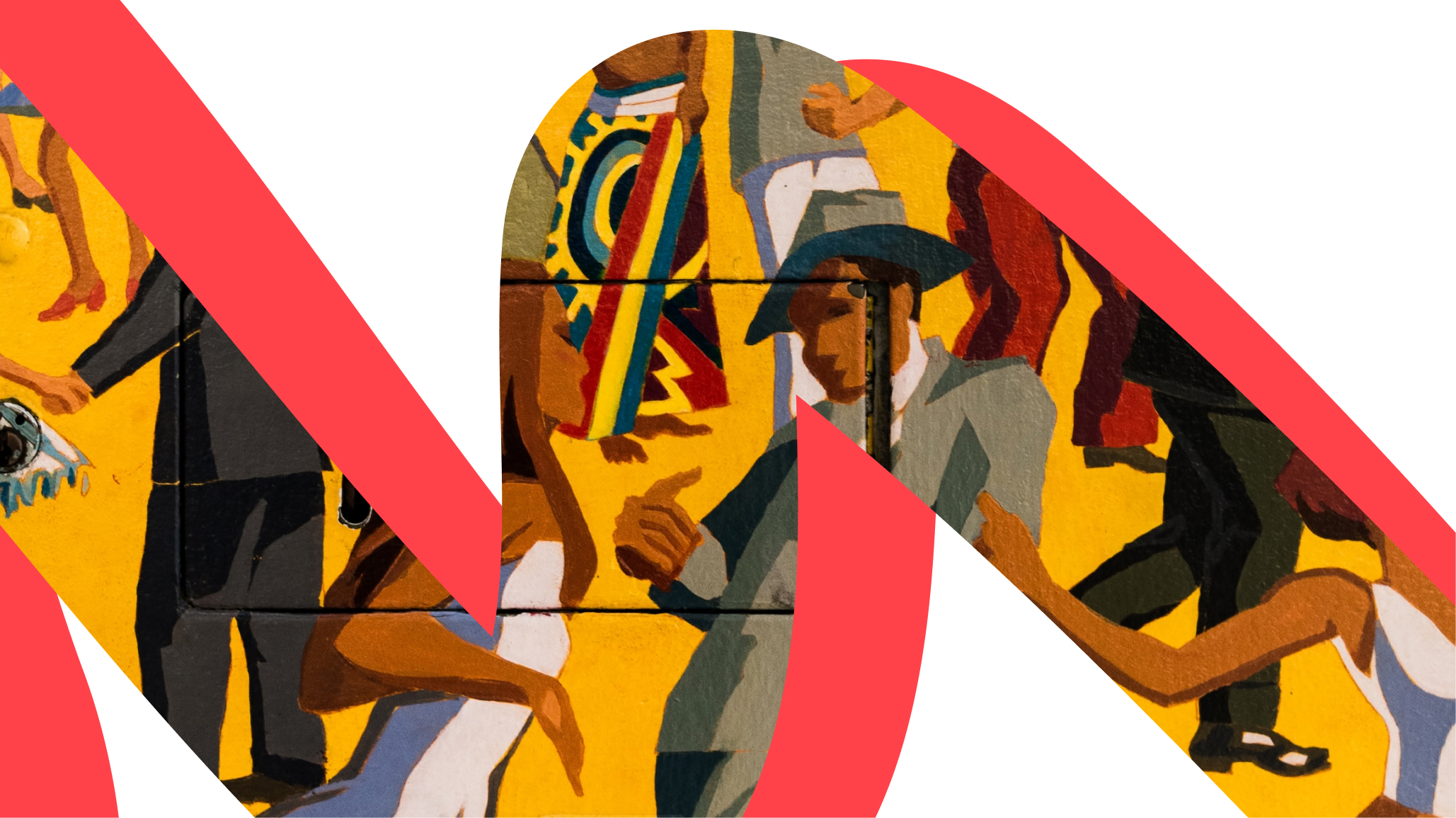Petya Raykovska is Human Made’s Director of Agency Operations and long-time WordPress Polyglots contributor. Petya will be diving deeper into all things cultural intelligence at this year’s WordCamp US in San Diego during her session Developing Cultural Intelligence.
We all speak English. Why don’t we understand each other?
The world has gone remote, and today you are likely to have colleagues from across the globe. We all speak a good level of English at work, but points of misunderstanding are rarely related to language skills. When miscommunication happens at work, it’s usually due to differences in our cultural programming.
Danish social psychologist Geert Hofstede famously said that culture is the software of the mind. It’s the operating system that invisibly runs our lives. It’s the way we’ve been programmed to see the world.
Cultural intelligence is often the missing piece when people from different cultures work together; that, or a lack of willingness and ability to understand colleagues due to benchmarking their communication and behaviour against your own culture and habits.
Over the years, my work with the WordPress Polyglots community (which spans all cultural clusters and has more than 20,000 people translating into 200 languages) and my work with the Human Made team have all taught me many valuable lessons on how to make cross-cultural communication work.
When the company was created, the majority of our employees and clients were representative of the Anglo cultures – the UK, the Americas, and Australia. As the company grew, our team and our clients became more culturally diverse. Nowadays, Human Made has representatives of all 10 global cultural clusters – Anglo, Nordic, German, Eastern European and Central Asian, South Asian, Confucian Asian, African, and Arabic – and we work in three regions; Asia Pacific, EMEA and the Americas.

The culture map
INSEAD Business School professor Erin Meyer defines 8 scales of cultural differences. These differences shape how people communicate, make decisions, lead, provide feedback, disagree, perceive time, decide, and trust.
Investing time in understanding where your own cultural programming sits on those 8 different scales can make a world of difference to your communication.
- How important is being on time in your culture? Is being a few minutes late acceptable, or is it considered a sign of disrespect?
- What’s the most common approach to decision-making in your day-to-day? Is it more acceptable for everyone to participate in making a decision and agree? Or is a quick top-down decision from one person the normal approach?
- How do you build trust – through shared experiences or through accomplished tasks?
- To persuade a person to run with your idea, do you have to lay out your full concept before presenting the action plan? Or do you present the action plan and then explain how you decided that’s the right approach to take? Are you more accustomed to direct or indirect negative feedback?
- Do you address leaders by their first name or surname? Is it acceptable to publicly criticise your manager? Is it ok to wear casual clothes to work? Does your manager need to know more than you on the subject of your work? Can they do your day-to-day better than you? Is that an important part of you recognising their authority?
Based on the answers above, you can position your own understanding and culture on a scale between Western and Eastern cultures. It’s important to note that there are people in the world who will be on the exact opposite side of that scale.
Three behaviours to help you work better across cultures
Once you know where you are on the scale, these steps will help build and develop your cultural intelligence:
- Think before reacting. When someone does something that feels very different or unacceptable to you, try to suspend instant judgement. Count to 10 and ask yourself if could this be a cultural difference. Why does this person think or behave like that? Ask them about it.
- Be curious. Approach behaviours you don’t understand with curiosity. The best way to get someone to cooperate is to be genuinely curious about the reasons they say or do things the way they do, and combine that with a positive attitude towards their differences of opinion. Avoid rejecting or dismissing people that do things differently.
- Show that you care. People won’t expect you to know everything about their cultural context, but they will be far more interested in sharing it with you if you show genuine interest. The ability to listen, appreciate, and adapt your own expectations based on that learning can make all the difference.
Real-life lessons learned from Human Made people

Lorna Lim – Senior Account Manager APAC, Singapore
Work-life balance and asking for support in different cultures
I see a stark contrast between stakeholders from EMEA and APAC. The work culture in some Asian countries can be very demanding. It is not uncommon for people here to expect everyone to be working at 110%.
It’s important to acknowledge that we’re all individuals with needs, and that everyone aspires to a work-life balance. Giving and receiving feedback was another learning moment – in some cultures people don’t ask questions unless prompted. It’s helpful to keep that in mind and create space for people to collaborate.

KAdam White – Principal Web Engineer, Americas, USA
Company politics & the culture within the culture
Our Americas region consists of people from the US and Latin America, and it’s interesting to think that if you’re not an American in the Americas region, you may not have the courage to call out a director publicly, whereas I think we should all feel like we can.
Even within your own culture, people have diverse ways of acting or thinking. Siobhan McKeown (Human Made COO) gave a great talk about why it was important to provide documentation in parallel supporting forms because people learn differently.

Vanita Nandakumar – Allocation manager APAC, India
Power distance. Arguing and disagreeing in public.
India is one of the highest power distance cultures in the world. A lot of Human Made’s communication style (direct, transparent, public feedback to leaders) would be considered culturally insensitive here. We also speak differently to women as compared to men. It felt odd when I first joined, but also liberating.
In India, the principles of Dharma are front and centre, which is mainly why most Indians tend to shy away from conflict, especially in public. However, this doesn’t mean we are always peace-loving folks; we can be atomic when pushed!

Yuliana Yordanova – Delivery Lead EMEA, Bulgaria
Public appearances across cultures – formal and informal attire matters, even remotely!
At Human Made we have an unwritten rule that, when possible, cameras should be on during calls because having face time is important for building relationships. It took me a long time to grasp why some people almost never turned their cameras on.
Over time, people shared that appearances play a crucial role in how you are perceived at work in hierarchical collectivist cultures – if you show up at work in casual clothing or in a casual space, that can be perceived as highly unprofessional. This is why it’s important to set expectations at the beginning of an engagement.

Miguel Axcar – Web Engineer Americas, Brazil
Language barriers, saving face, the courage to speak up
In a multicultural work environment, non-native speakers will rarely speak up in a room full of natives. If you are a native speaker, gently encouraging non-native speakers to share their ideas shows them that their voices matter, that it’s ok to make language mistakes and that you are interested in what they have to say.
As a non-native speaker, actively communicating and sharing your ideas in less-than-perfect English is leading by example and inspires other non-native speakers to be brave and speak up as well.

Jenny Wong – Engineering Manager EMEA, United Kingdom
Respect each other’s time
Time zone differences can mean communication is sluggish, or that someone stays at work late or starts early. Building working habits that respect each other’s time helps.
We can do this by considering what information we are sending, and in what format. Over-communicating to ensure a message has context, decisions, reasoning and anything else that will help the reader understand can be useful. Optimising our tools and communication style to respect each other’s time is key: it could be as simple as keeping your calendar up to date.
Petya will be speaking on Developing Cultural Intelligence at WordCamp US 2022 in San Diego on September 10th at 9:15 am PST (WCUS Schedule).
Her talk will be streamed live, so if you’re not going to WordCamp US you can still tune in for more insights and advice on building your abilities to collaborate across cultures.
More on Cultural Intelligece:
